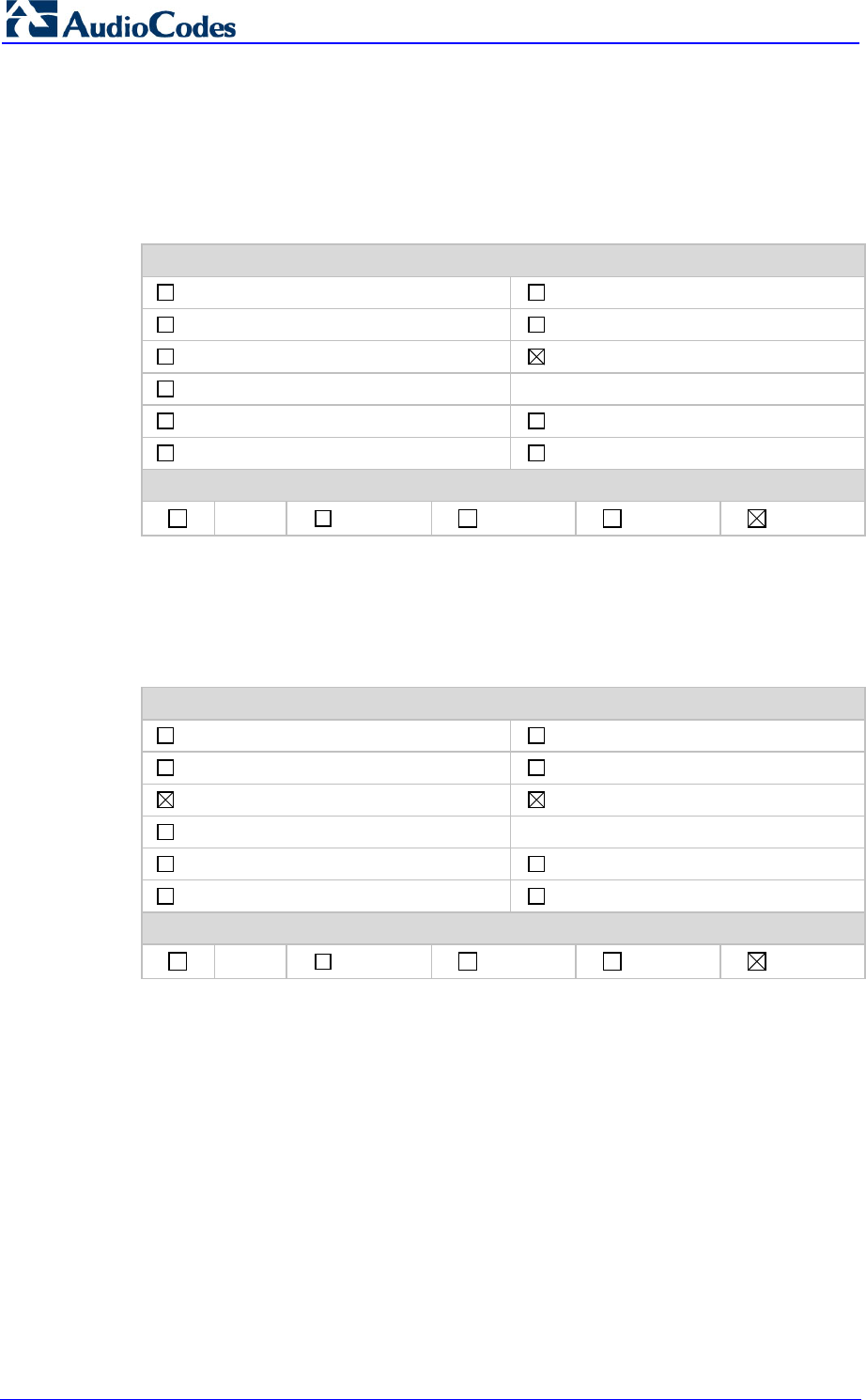
SIP Release Notes 74 Document #: LTRT-26901
CPE SIP Products
• crypto isakmp policy: defines an Internet Key Exchange (IKE) policy
• crypto ipsec transform-set: defines a transform set of acceptable
combination of security protocols and algorithms
• crypto map: creates or modifies a crypto map entry and enters the crypto map
configuration mode
6. Ethernet in the First Mile (EFM) for SHDSL WAN Interface:
Product
MP-11x MP-124
Mediant 600 Mediant 1000
Mediant 800 MSBG Mediant 1000 MSBG
Mediant 2000
Mediant 3000/TP-6310 Mediant 3000 HA/TP-6310
Mediant 3000/TP-8410 Mediant 3000 HA/TP-8410
Management Protocol
Web INI
SNMP
EMS
CLI
The device’s SHDSL WAN interface now supports the EFM standard. EFM provides a
single (end-to-end) approach for transmitting Ethernet traffic between the WAN and
LAN over different topologies such as copper and fiber optic point-to-point networks.
This typically results in greater broadband access and reduces the bottleneck in the
network.
7. Virtual Routing and Forwarding (VRF) Lite:
Product
MP-11x MP-124
Mediant 600 Mediant 1000
Mediant 800 MSBG Mediant 1000 MSBG
Mediant 2000
Mediant 3000/TP-6310 Mediant 3000 HA/TP-6310
Mediant 3000/TP-8410 Mediant 3000 HA/TP-8410
Management Protocol
Web INI
SNMP
EMS
CLI
The device now supports Virtual Routing and Forwarding (VRF). This technology
allows multiple instances of a routing table to co-exist within the same router at the
same time. The device’s VRF feature allows interfaces to be clustered into a VRF to
provide segregated routing domains. The VRF feature uses the device’s single
physical router as multiple logical routers (up to 32). Each VRF is associated with its
own routing table. When creating fully separated logical routers on the same physical
router, every interface can be mapped to a specified VRF and static routes can be
added to it. The main CLI command for configuring VRF is ip vrf.
Note: Some features are available only on the default, unnamed, VRF. These include,
amongst others, BGP, OSPF, RIP, Management interfaces (Web, CLI and SNMP),
and SIP (when using the device’s VoIP component). For a complete list of features
supported only on the default VRF, please contact AudioCodes.


















